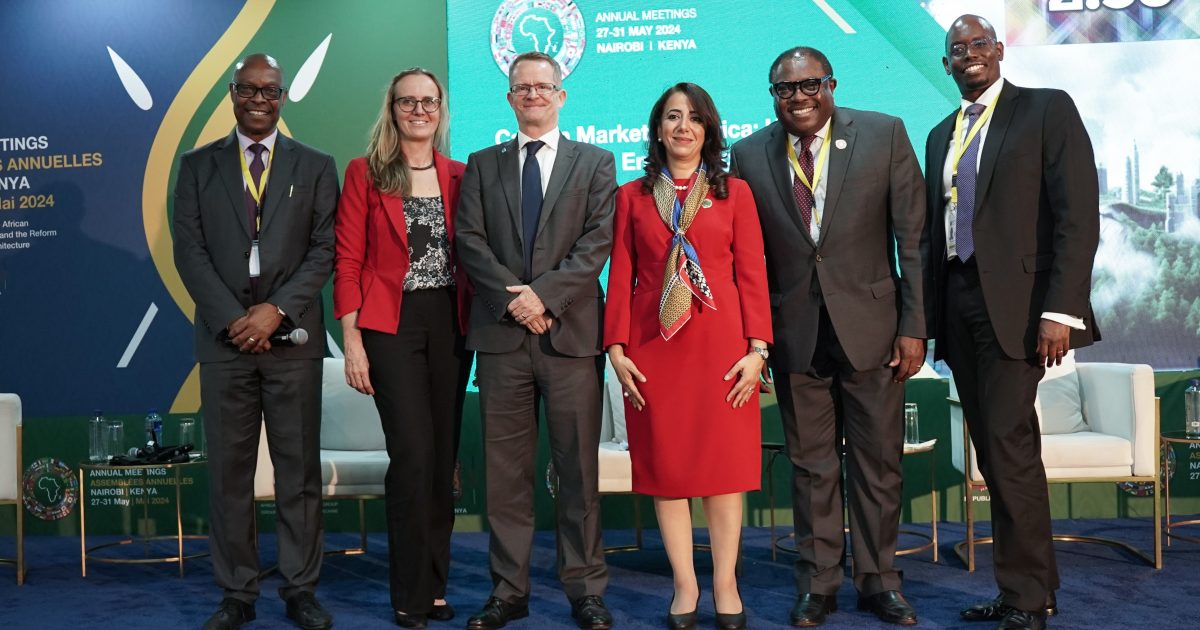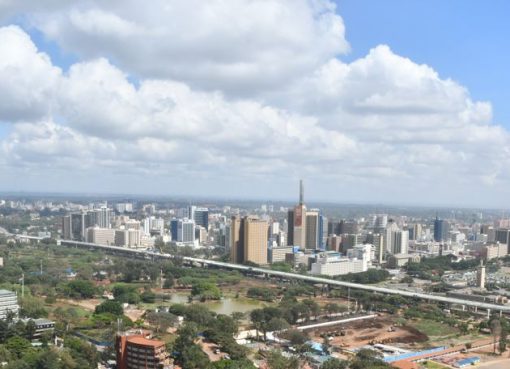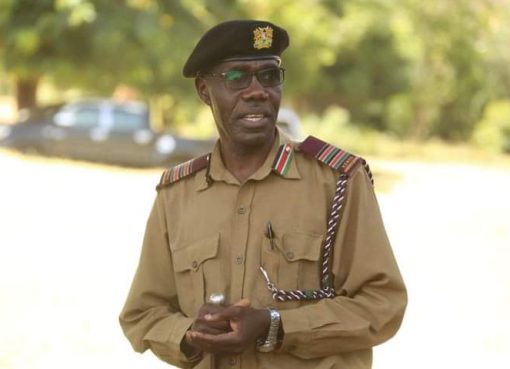Africa’s interests and reality in a fast-evolving carbon economy represent a real opportunity to reduce carbon emissions and mobilize climate finance, experts have said.
During a high-level event on carbon markets in Africa themed, ‘Unpacking Complexity and Embracing Opportunities’ held during the African Development Bank conference in Nairobi, various experts noted that carbon markets have emerged as one of the fastest-growing innovations for scaling climate finance.
Dr. Kevin Kariuki, Vice President for Power, Energy, Climate and Green Growth at the African Development Bank said Africa offers huge potential to contribute to the global mitigation efforts while powering the continent’s economic growth, due to its vast natural assets.
He added that over the last few years, the global community has engaged in multiple discussions on mobilizing the financing required to implement global climate action.
“In Africa, we have estimated that the cost of implementing our Nationally Determined Contributions, (NDCs) under the Paris Agreement, is about USD3 trillion between 2020 and 2030,” he explained.
Dr. Kariuki further said that during the Africa Climate Summit, held last year in September in Kenya, African leaders advocated for, among other things, innovative financing mechanisms and financial instruments to drive private capital flows for climate action across the continent.
“The global carbon market is currently valued at about USD1 trillion. Yet, although Africa possesses 23 percent of global forest carbon, it has only earned USD200 million annually on average, principally from voluntary carbon markets,” he said.
Considering the continent’s vast resources and carbon potential, Dr. Kariuki said the continent must tap into this market to harness the enormous economic, social, and environmental opportunities that carbon markets present.
Due to the related complexities, Dr. Kariuki added that realizing Africa’s carbon market potential will require a common understanding of the market structures, policy frameworks, regulatory tools, knowledge systems, economic tools, incentive structures for developing high-integrity carbon projects and credits in Africa.
“The Bank is committed to supporting our regional member countries to address the challenges related to the design of high-integrity, transparent, and effective carbon markets in Africa, while helping the countries actualize the opportunities arising there from,” he said.
For Africa, Dr. Kariuki noted that carbon markets can generate jobs for the growing youthful population, enhance ecosystem productivity, which is critical for food security, for health and well-being, as well as climate resilience.
He added that these possible outcomes are the blueprints of economic and social development. We cannot afford to repeat the mistakes of the past during the Clean Development Mechanism (CDM) era or of the Kyoto Protocol where Africa only accrued 2 percent of global CDM market.
Under the Paris Agreement, he emphasized that Africa must do better beyond the benefits to date from voluntary carbon markets as there are great opportunities for trade in carbon credits, compliance markets where prices for emission reductions are much higher than involuntary markets.
Dr. Kariuki said the Bank will be supporting Africa’s Carbon Market Initiative (ACMI) launched at COP27 in Egypt in 2022 to foster collaboration and support efforts on the continent.
“African Development Bank will now officially join the initiative with a view to galvanizing the requisite momentum on the African carbon markets and also empower African countries and the private sector in securing additional resources to combat climate challenges effectively,” said Kariuki.
Paul Muthaura, CEO of the Africa Carbon Markets Initiative (ACMI) said that there is a great deal of energy and interest in the carbon market going on globally and that in the first 18 months, they have already started to work with seven different countries to help them put in place a conducive legal environment.
“We are glad to say because of the clear understanding of the value that Africa brings to the space, we already have a billion dollars of commitment, indicative commitments to acquire high integrity, high value, high quality African credits,” he added.
He explained that they have been rolling out programs with partners, working with governments to build understanding and awareness on what is necessary for their firm implementation, on carbon credits.
We are looking at building credible pipeline that can start catalyzing high integrity demand to move them to the next level and we are working with Kenya, Mozambique, Rwanda, Nigeria, Ghana, and Malawi already, but we have to be very honest that there are 20 who have expressed their interests, but we need to build the capacity to be able to service them all,” Muthaura said
Dr. Rebekah Shirley, Deputy Director for Africa at the World Resources Institute (WRI) said that not only is pricing carbon seen as crucial to incentivizing decarbonization, but even in the most aggressive scenarios of decarbonization, it is estimated that alongside mitigating or preventing emissions, the world will need to be removing five to even 16 billion tons of carbon annually by 2050.
“There is growing demand for carbon markets. Alongside our clean energy resources, which can potentially power massive amounts of engineered removals, tropical forests alone, like those found in Africa, we could sequester an estimated 1.4 to 1.8 billion of those tons of demand, so the time has indeed come for Africa to be prepared,” she added.
In Africa, Dr. Shirley further noted that there is a massive opportunity to create an economy, improve health, safeguard landscapes and more through the expansion into carbon markets and therefore Africa must charge forward to ensure community engagement and allow transparency and integrity as key to a viable market.
Kenyan President William Ruto who presided over the opening session of the annual meetings of the African Development Bank Group emphasized on the urgent need to mobilize investment for climate transition in developing countries from public and private sources globally.
President Ruto mentioned COP28 in Dubai last December that agreed to support the creation of markets that can mobilize resources at scale and called for reform of the international financial architecture.
The President said “We assert that transforming the international financial architecture is imperative to give Africa a fair chance to turn its immense potential into opportunities to overcome multiple challenges and develop inclusively and sustainably.
Kenya last week hosted the 59th annual meetings of the AfDB Group, as the Group also celebrated its 60th anniversary. The bank has become Africa’s premier development financing institution and to date has financed 5,432 projects, 4,036 of which are completed, providing a mechanism to coordinate the fight against poverty and improve the standards of African financing and other institutions.
By Wangari Ndirangu





